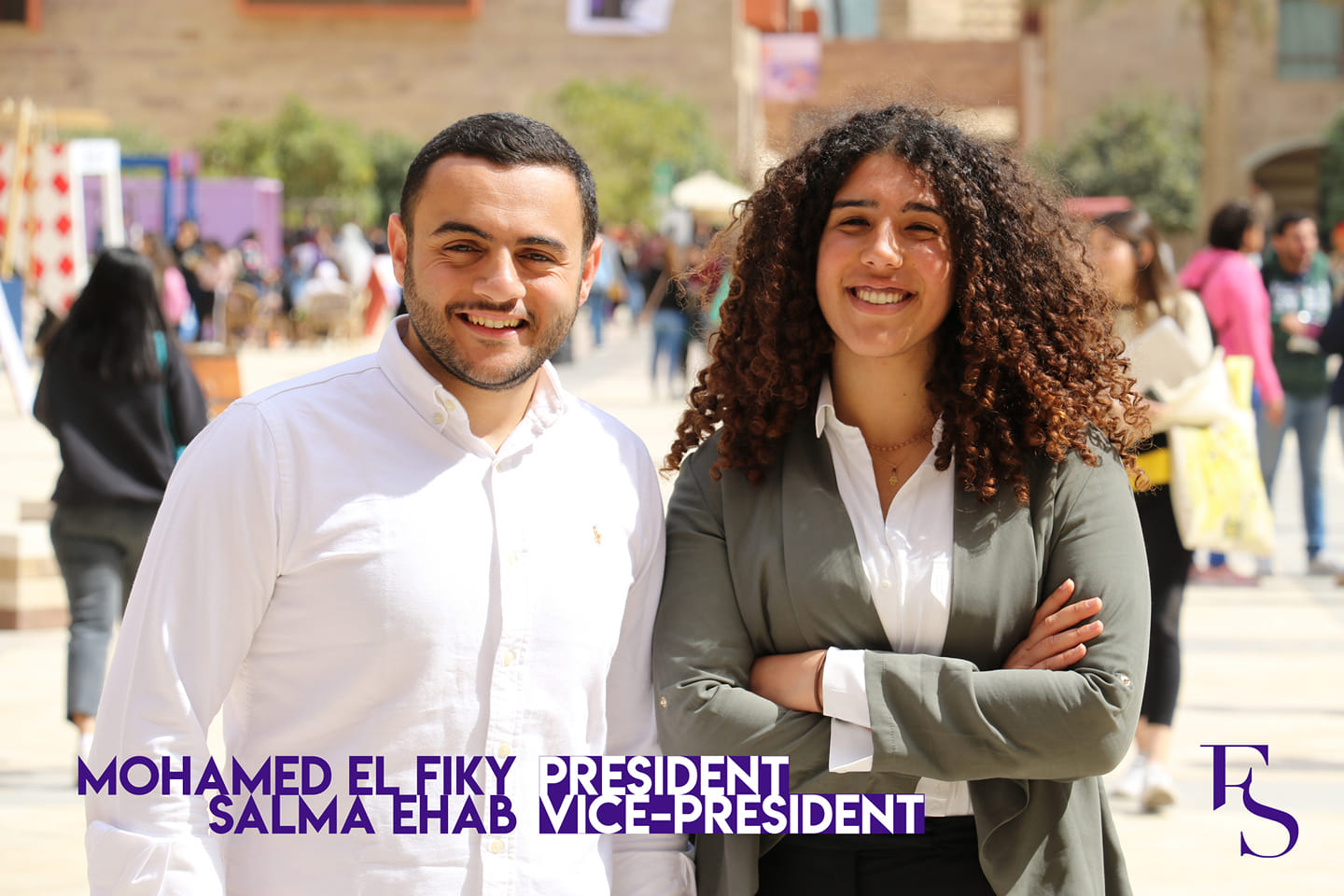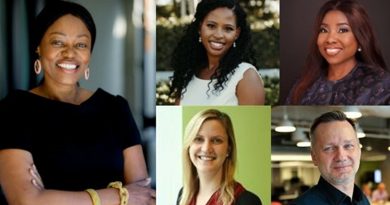Mohamed El Fiky & Salma Ehab: Include, Innovate, Impact
The Caravan Editorial Board met with Mohamed El Fiky and Salma Ehab, candidates for SU President and Vice-President, respectively.
Q: How would you evaluate the SU’s performance over the past year?
Mohamed El Fiky: Being part of the current SU as the academic affairs chairperson, I can say that this is a very hardworking union. Maybe the general circumstances around at AUC at the moment [do not provide] the most helpful environment to facilitate full delivery of our services, but we are working as hard as we can. There are some areas that we can build on such as, the services committee and sustaining the quality of entertainment committee, or the entertainment genre in general. Building on it, we will increase exposure when it comes to academic affairs. When it comes to the representation aspect, we are going to complete all ongoing negotiations and provide different challenges to the administration all for the sake of the student body to fulfill their needs and to facilitate a better university experience as well.
Salma Ehab: As someone who hasn’t been part of the union, I would agree that the union is definitely hard working. There has been a lot of efforts, especially in comparison to what has been happening in past years. I think, though, there is a problem when it comes to communication. This is something we really want to focus on next year.
What are the challenges the union faces generally and the challenges you expect to face?
F: The challenges we expect to face could be reaching out to the student body. We hope to facilitate this with high maintenance communication with all student stakeholders when it comes to the different political entities, student organizations and student body in general. It is crucial to maintain this communication channel and let the students invest in all the decisions that the SU are going to execute. We are not willing to have this exclusive SU. We need an inclusive SU.
In a recent article in The Caravan, 25 percent of students complained about lack of transparency from the SU, how do you plan on improving communication and the issue of transparency?
E: We hope that we are going to be working a lot more on ground. Social media is definitely one of the channels we are going to depend on primarily because it has a bigger reach and is more efficient and faster. However, we hope to have a system that allows us to talk to students directly through people that represent them, that are of them. Usually, we have people from outside certain sectors representing these sectors or you have something like the senate. We hope to achieve something that allows us to be communicating with students via students who share the same interests, who share the same district or who share the same geographic proximity. For example, a dorms student representing the dorms.
Some students have told us that the SU is exclusive and that they can’t get assistance unless they know someone personally in the SU. How do you respond to that?
F: I’ve been working in the union for 3 years now. Salma has been working in student activities in general when it comes to the different categories available. Nevertheless, we share a very diverse academic background, even different class standings. Building on this, we are willing to increase our reach when it comes the input of the students, not entitling it to a certain group of people, regardless of their activities or political affiliations, since we are both independent individuals and we do not belong to a certain political affiliated entity.
Balancing between events, entertainment and representation appears to be an issue for every union, how do you plan on tackling the issue?
E: We’ve come to realize that entertainment has reached an impressive level at the university. Investing in it is important but we feel like the investment should differ. We should be more innovative when it comes to the activities we do. We should be more inclusive in regards to the activities we present to the student body. It is definitely something we want to sustain in terms of the quality that has been offered but we want to invest more when it comes to the ideas. Doing so, given the [current] quality of entertainment, will allow us to put more focus on representation.
What is your focus in representation?
F: Our main focus in representation is providing a challenge to the university whenever possible. This is done in order to make a statement that we, as students, regardless of the entity representing the students, have a say. This does not mean we are not going to negotiate and lobby; we will negotiate.
A lot of students have said that the SU has lost its ability to mobilize students and that students lost interest, how do you plan on dealing with this issue?
E: We feel that communication and being transparent with the student body is vital to our vision and to what we want to be doing next year. Doing that consistently from the time we hold office, would allow us to have more grounds with the students and to be able to mobilize the student body when needed. Mobilization is a very tricky avenue to pursue and it is not always the best. Being creative and innovative in when, how, [and] how far we want to take it is important before taking that step. Ensuring that we are transparent and communicating with the student body from the beginning will help us take these decisions.
How do you plan on sustaining the services offered by the SU?
F: One of the things we plan to do is build on the services that students find of value. We want to build more services on a need-based approach through the input we are receiving from the students.
E:That is a huge part of our planning process and this is why our plans took us a long time to think of something concrete. It is based purely on research. What we’ve invested our time in these past two month has been talking to different students from different majors and interests and asking them about their needs. Having collected all these ideas, we are trying to figure out how we can fill the gap and how we can provide an alternative to the student body where the university has failed them.
F: We have to be realistic when it comes to our goals. If we know we have 100 problems and I tell you we will solve all of them, that probably won’t happen. In light of being sustainable, we have to set our goals and prioritize them based on the needs of the students. We can start with the most needed 50 problems and build a base for [other] problems for upcoming unions in light of sustainability and development.
A lot of students have said that they lost interest in student politics, how do you plan on tackling this issue? Are there plans to reinsentify the students?
E: I think a very big part of why the student body has lost interest in the union, or in activities in general, is because activities in recent years have been curated to suit a very specific type of student. Stepping away from stereotypes, there are very specific people who join student activities and who are interested in the student union. Which is why what the union produces, in terms of output, is to cater to these students. By diversifying what we are doing and by including people from the very beginning, we hope that this will get students engaged.
F: The input we gather is not only limited to student activities and the SU. It is about their experience as students at AUC. One of the things that we hope to facilitate is providing [to students], regardless of engagement in student activities. Some students do not get fully engaged in activities yet they suffer when it comes to certain aspects in their student experience at AUC.
What are the structural changes you are planning for in the SU?
F: We think this is a main goal that we set after we compile student input. If I decide beforehand, these are the specific committees that are going to be operating next year, then I am limiting other issues that I could engage in some committees.




